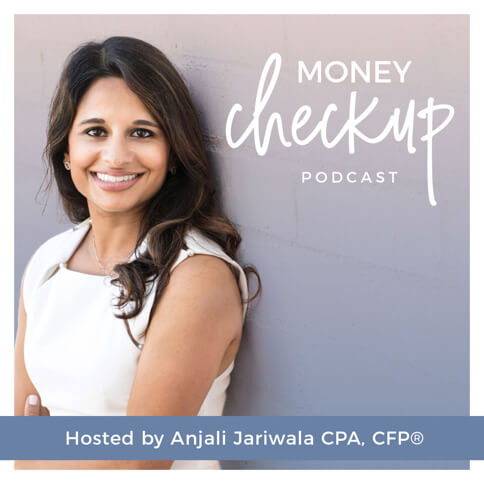If you read about personal finance or physician finance, even casually, you have almost certainly encountered “the FIRE movement.” The movement is very popular online, and financial bloggers and readers from a variety of backgrounds have become proponents.
Critics argue that FIRE is an overly blunt solution to the problems of stress and burnout, which could be solved by smaller changes like working less and adjusting your lifestyle accordingly. Financial independence and work-life balance, up to and including early retirement, look different for everyone.
Before you jump on the FIRE bandwagon, define these terms for yourself. Reflect on what you want out of work and out of life. FIRE is possible for those who commit to it. But it is not the only way to a happy, fulfilling, prosperous life.
What is Financial Independence?
I have some physician clients for whom financial independence means working part-time or moonlighting. For others, financial independence means having enough money saved to start a business or to take another financial risk. For others still, it means the ability to stop working altogether, in order to have more free time for their families or passion projects. Generally speaking, though, “financial independence” means that you no longer need to work in your current capacity or earn what you currently earn to meet your financial goals.
The question that ultimately matters is: What does financial independence mean to you? There is no wrong answer. As you spend time reflecting on this, minimize your consumption of outside sources. Have these conversations with your spouse or partner, your close loved ones, and your financial advisor.
I encourage this because, in some situations, I have seen people engage in an unhealthy competition to achieve someone else’s definition of financial independence. They may sacrifice their present happiness for an imagined future that they ultimately realize they don’t want. For example, many of my physician clients don’t want to stop working entirely. They simply want to be secure enough to take more time for themselves.
When you start to dig deeper into what financial independence means to you, you may realize that you are much closer to financial independence than you think. You can work with your financial advisor to take a few small steps now that will get you closer to that long-term goal without compromising your short-term happiness.
What Does it Mean to Retire Early?
Many of my physician clients are interested in retiring early, since burnout is so common in the profession. Dr. Nisha Mehta spoke about this in great detail on Money Checkup — burnout is so widespread that many physicians say they would not encourage their children to go into the profession.
When we talk about retirement, the conversation is typically framed around age. The standard retirement age is 65, as determined by federal benefits like Social Security and Medicare. Retiring early can mean retiring at 60 or at 45.
A better question to ask yourself is: What is your ideal life?
When I have posed this question to my clients, their answers have included:
- I want to work less so I have more time.
- I want more autonomy and flexibility in how I work.
- I want to stop working altogether.
Burnout feels very different to different people and can prompt each of these responses. But when clients tell me they no longer enjoy what they do and want to retire early, I often ask: Why spend the next decade or more doing unfulfilling work when you can make a career change, or improve your work circumstances and habits so work is more satisfying?
Dr. Mehta points out that, if earning more money begins to take away from a physician’s well-being or happiness, it may not be worth it. She encourages physicians to set financial goals, and if they are consistently meeting those goals, consider saying no to additional hours or responsibilities. Often, she says, physicians do not need to work as much as they think they do.
A second essential question in considering early retirement is: What do you want to do when you retire?
Surprisingly, although many professionals look forward to reaching retirement, few have thought about what they will do when they get there. When I ask my clients this question, they tend to express a desire to spend more time with their loved ones, to travel more, or to pursue a hobby or passion project.
As with burnout, early retirement is not the only solution to these desires. A shift in what you do or how you work may result in more satisfaction now, allowing you to continue working on your own terms rather than those set by someone else.
All this is to say: “Early retirement” can be a misnomer. Work does not have to be all or nothing, and our relationships to our work can change throughout our lives. Spend some time reflecting on the personal and family life you want and deserve. What can you do to take more control over your professional life so that you can work in a way that supports that lifestyle?
What You’ll Need to Achieve FIRE
If you are committed to retiring early, the first step is to figure out how much you need to retire. Create a monthly or annual budget that will support the type of life you want to live and multiply it by the number of years for which you’ll maintain that lifestyle, based on your target retirement date. Make sure to apply an inflation adjustment.
The simplest way to achieve FIRE is to save as much of your income as possible. Many physicians encourage one another to “live like a resident” for a period of time after you finish training in order to pay down debt and contribute to your savings.
The earlier you hope to retire, the more strict you will need to be about your spending — to the point that some critics of the FIRE movement suggest that this level of discipline can be so severe that it takes away from day-to-day joy.
Others in the FIRE movement boast side hustles, or income streams separate from their jobs. This can include real estate investing, private equity investing, and much more. Still others, like Letizia Alto and Kenji Asakura of Semi-Retired MD, continue moonlighting or working part-time as physicians, approaching medicine as one income stream among several. Any income you earn will reduce the amount you need to withdraw from your savings.
Before you commit to FIRE, think carefully about the sacrifices you would need to make to achieve early retirement. “Semi-retirement” may be a much more achievable goal — one that will help you manage burnout and prioritize yourself, but without the strict discipline FIRE requires.
If you are convinced that FIRE is right for you, however, then work with a financial advisor to create a plan for building the financial cushion you’ll need. Remember throughout that financial plans are meant to be dynamic, not static, adjusted as circumstances change. Life works the same way.




